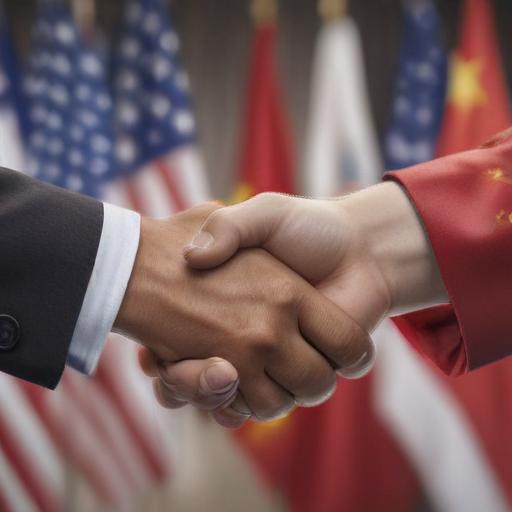U.S. and Chinese officials engaged in critical discussions regarding tariffs that could significantly impact the global economy, concluding a lengthy negotiation session in Switzerland that lasted over 10 hours. These sensitive talks, aimed at de-escalating the ongoing trade tensions between the two nations, are set to resume on Sunday, a source familiar with the discussions confirmed.
President Trump highlighted the advancements made during the meeting on his social media, stating, “great progress” was achieved. He emphasized the constructive nature of the negotiations, expressing a desire for improved access for American businesses in China.
Although specific details of the day’s discussions remain unclear, Treasury Secretary Scott Bessent participated alongside Chinese Vice Premier He Lifeng, representing an essential first interaction between the two. Bessent noted that discussions would focus on de-escalation rather than an overarching trade deal, given the unsustainable nature of the significant tariffs imposed by both countries.
The backdrop of these discussions is marked by a complex web of tariffs that hover around 145% from the U.S. on Chinese goods, with China responding with levies reaching 125% on American imports. This tit-for-tat strategy disrupts trade that previously amounted to $660 billion in 2022.
Experts, including Sun Yun from the Stimson Center, noted that achieving any tangible progress, even a small reduction in tariffs, would signal a shift toward improved trade relations. She underlined the importance of both parties agreeing to reduce tariffs simultaneously to foster optimism in the markets.
The negotiations are crucial not only for U.S.-China relations but also for global financial stability. Many industries dependent on trade between the two countries are watching closely, acknowledging the economic ramifications these tensions could cause.
In a related context, the U.S. continues to engage with Switzerland regarding trade matters, with discussions deemed productive. This too could lead to economic benefits on both sides, reflecting an increasing interest in transatlantic investments.
As the situation unfolds, hopes remain high for a potential resolution that favors both economies and alleviates the mounting pressures on international trade. Continued dialogue is key, and even minor agreements could pave the way for more substantial compromises in the future.
